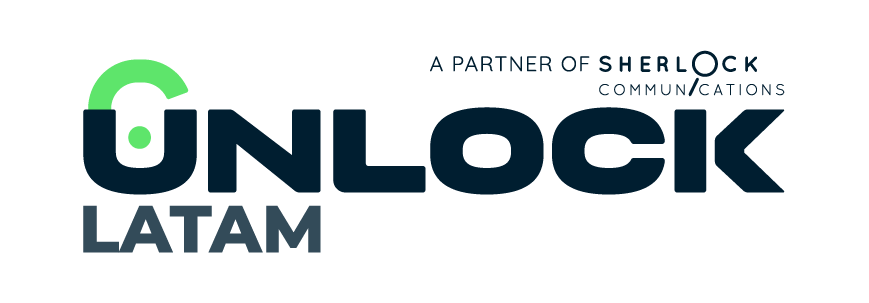How to Develop a Co-Selling Model with Local Partners in Brazil
Co-selling with local partners in Brazil can transform your market entry strategy from expensive trial and error into accelerated growth. Brazilian customers prefer buying from companies they know and trust, making local partnerships essential for international success.
However, building effective co-selling relationships requires more than signing distribution agreements and hoping for the best.
Understanding Co-Selling in the Brazilian Context
Co-selling in Brazil goes beyond traditional channel partnerships. It involves shared responsibility for customer acquisition, relationship management, and ongoing support that leverages each partner’s unique strengths and market position.
Local partners in Brazil bring invaluable assets that international companies simply cannot replicate quickly. These include established customer relationships, deep market knowledge, regulatory expertise, and cultural credibility that takes years to develop independently.
The most successful co-selling models create win-win scenarios where both parties contribute essential elements to the sales process. Your international expertise combined with local market access creates competitive advantages that neither partner could achieve alone.
Identifying the Right Local Partners in Brazil
Not every local company makes a good co-selling partner. Look for businesses that complement rather than compete with your core offerings while serving similar customer segments through different approaches.
Strong local partners typically have:
- Established customer relationships in your target market segments
- Sales teams experienced with complex B2B selling processes
- Technical capabilities to support and implement your solutions
- Financial stability to invest in joint sales and marketing activities
- Cultural alignment with your company values and business practices
- Growth ambitions that match your expansion timeline and goals
The best partnerships often emerge from companies facing similar challenges or pursuing complementary growth strategies rather than obvious industry leaders who may see you as competition.

Structuring Your Co-Selling Agreement
Revenue sharing models need careful consideration to ensure both partners remain motivated throughout long sales cycles. Simple percentage splits rarely work because they don’t account for varying levels of effort and expertise required at different stages.
Consider activity-based compensation that rewards specific contributions like lead generation, technical demonstrations, contract negotiations, and post-sale support. This approach encourages partners to excel in areas where they add the most value.
Territory and customer ownership require clear definition upfront. Will your partner handle all prospects in specific regions, or will you divide customers by company size, industry, or other criteria?
Building Joint Sales Processes
Your co-selling process should leverage each partner’s strengths while maintaining consistent customer experiences. Map out every stage from initial sales prospecting through deal closure and ongoing account management.
Lead qualification becomes crucial when multiple parties are involved. Establish clear criteria for when prospects get passed between partners and what information needs to be shared at each handoff point.
Sales training needs to flow both directions. Your local partners need deep product knowledge and competitive positioning, while your team requires market insights, cultural guidance, and customer behavior patterns specific to Brazil.
Overcoming Common Co-Selling Challenges
Communication breakdowns happen frequently in co-selling relationships, especially across different time zones and languages. Establish regular check-ins, shared reporting systems, and clear escalation procedures for addressing issues quickly.
Customer confusion can arise when multiple companies are involved in sales processes. Develop joint messaging that clearly explains each partner’s role and value proposition while presenting a unified front to prospects.
Internal resistance often emerges when sales teams feel threatened by partner involvement. Address these concerns early by showing how partnerships expand rather than replace existing opportunities.
Technology and Tools for Effective Co-Selling
Shared CRM systems help maintain visibility into joint sales activities while protecting sensitive information that each partner needs to keep confidential. Consider platforms that allow selective data sharing based on partnership agreements.
Communication tools become essential for coordinating activities across different organizations. Video conferencing, instant messaging, and project management platforms help maintain alignment even when teams can’t meet face to face.
Joint marketing automation can streamline lead nurturing and campaign management while ensuring consistent messaging across all customer touchpoints.

Managing Cultural Differences in Sales Approaches
Brazilian sales processes often involve longer relationship building phases than international companies expect. Your local partners in Brazil understand these cultural nuances and can guide appropriate timing for different sales activities.
Decision making styles vary significantly between Brazilian and international business cultures. Local partners help navigate complex approval processes while managing stakeholder relationships that might not be obvious to outside observers.
Communication preferences differ across regions and industries within Brazil. Partners with deep local knowledge can adapt your messaging and presentation styles to resonate with specific customer segments and geographic markets.
Measuring Co-Selling Success
Traditional sales metrics like revenue and deal volume provide important baseline measurements, but co-selling success requires additional indicators that capture partnership health and customer satisfaction.
Track relationship quality metrics such as customer retention rates, expansion sales, and referral generation that indicate long term partnership value beyond initial transactions. Working effectively with local partners in Brazil means measuring both quantitative results and qualitative relationship indicators.
Partner satisfaction surveys help identify areas for improvement before small issues become major problems that damage relationships and sales performance.
Scaling Your Co-Selling Model
Start with pilot programs that test partnership dynamics and sales processes on a smaller scale before expanding to full market coverage. This approach allows you to refine systems and address challenges without risking major investments.
Successful co-selling models can be replicated across different regions and market segments once you understand what works in Brazilian business environments. The experience gained from your initial local partners in Brazil provides valuable insights for expanding your network strategically.
Document best practices and lessons learned throughout your partnership development process. This knowledge becomes invaluable for training new partners and expanding your co-selling network over time.

Your Trusted Partner in LATAM Expansion
From market research to legal compliance, we guide your business every step of the way.
